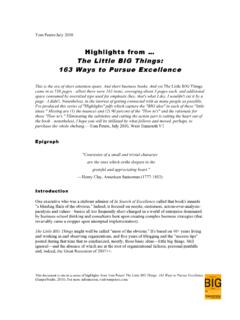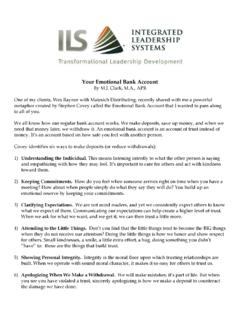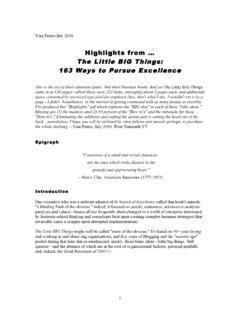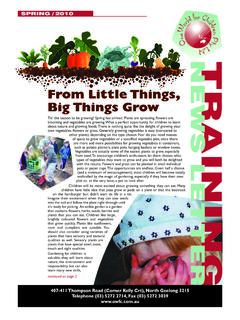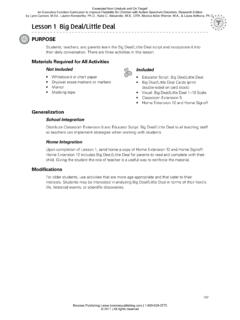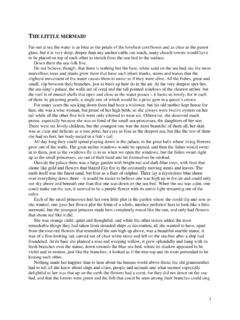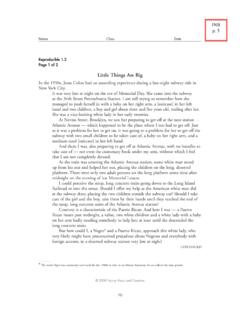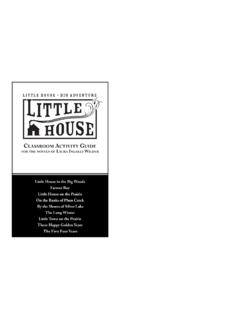Transcription of FROM LITTLE THINGS BIG THINGS GROW - ICAC & OPI SA
1 FROM LITTLE THINGS BIG THINGS grow THE STORY A public authority issues purchase cards to employees who need to regularly purchase small domestic items (food, medicines and essential supplies). Each person who has a purchase card is required to reconcile the charges on the card via a monthly annotated expense report that includes both the reason for purchase and proof of purchase. This report must be authorised as true and accurate by the employee s manager. Three years ago a trusted employee grabbed some milk and bread for home whilst he was in the supermarket purchasing approved supplies. When he got to the checkout he realised he didn t have any money so he charged the milk and bread, along with the legitimate items, to his government purchase card. His intention was to let his manager know and to reimburse the money; however, this did not occur to him again until after he had completed his reconciliation report and it had been approved.
2 A week later, whilst in a pharmacy and a department store, he included a few more personal items amongst his shopping and charged them to his purchase card. This became a regular occurrence. As time went on and the employee s dishonesty remained un-detected, his offending became more frequent and more brazen. Despite approving all reconciled purchase card reports, it wasn t until his manager was asked to review the purchase card requirements of his team that he noticed this employee had been charging larger and larger sums of money over a three year period. He was regularly exceeding both his individual transaction limit and monthly transaction limit. An investigation commenced and the fraud was exposed. It is estimated that this employee defrauded the agency of $54,000 over three years.
3 FURTHER INFORMATION Under Treasurer s Instructions each purchase card holder must sign an agreement and acknowledgement by cardholder form that outlines the limits on the use of the card and other appropriate responsibilities. The signed agreement must then be approved by the CE prior to the card being issued. PAGE 2 OF 2 GOVERNANCE AND OPERATIONAL ISSUES How could a carton of milk, a loaf of bread and good intentions to declare and repay the expenditure have led to this? If the fraudulent transactions increased in value over time, why do you think this was not detected as part of monthly financial reporting and a budget comparison process? How is it possible that a purchase card holder can exceed both individual and monthly transaction limits? How culpable, if at all, is the manager who approved the fraudulent claims for so long?
4 Is it possible that this agency had a systemic lack of controls to allow this fraudulent activity to continue without detection for three years? Why is it important to understand exactly how this fraud occurred? In terms of controls and governance what might the public authority do to prevent this occurring again? Is there anything else the public authority should consider? Should this matter be reported to the Office for Public Integrity?
